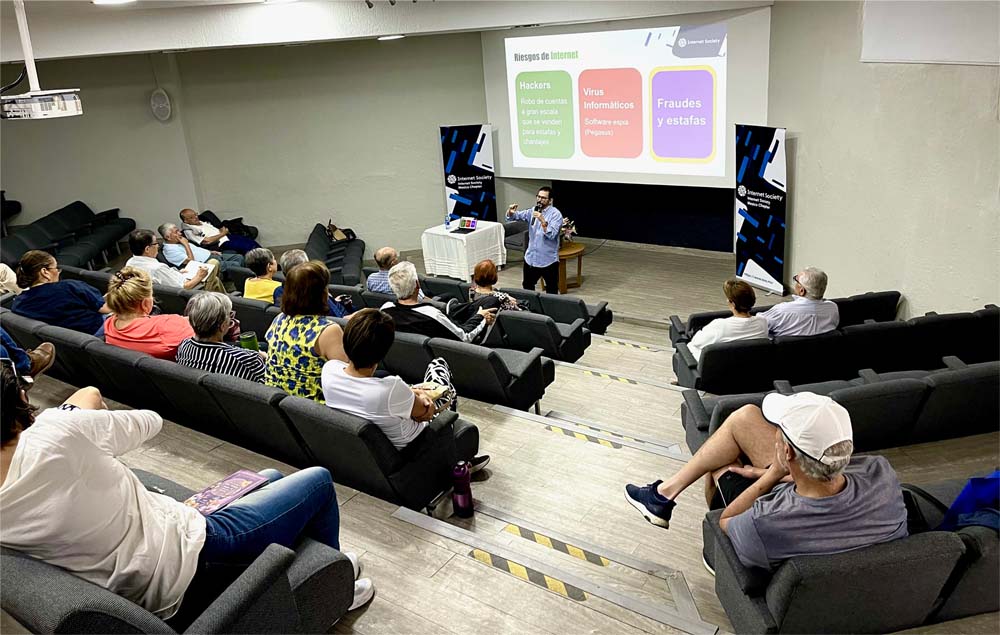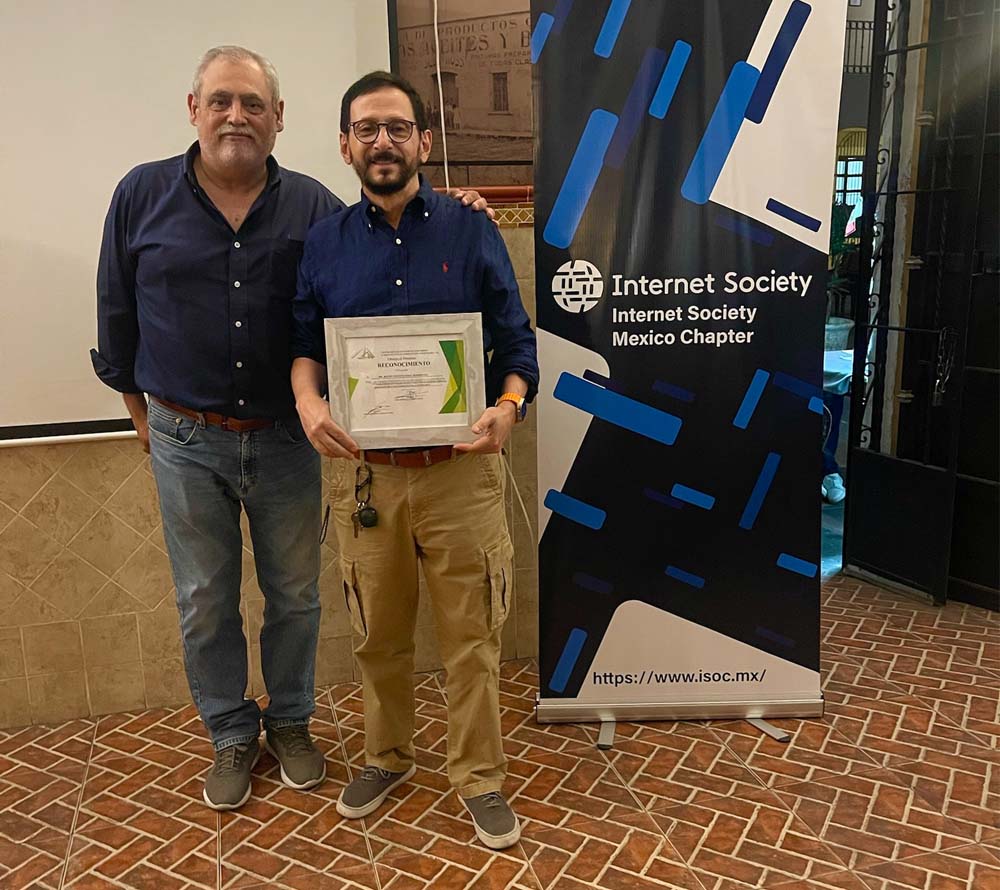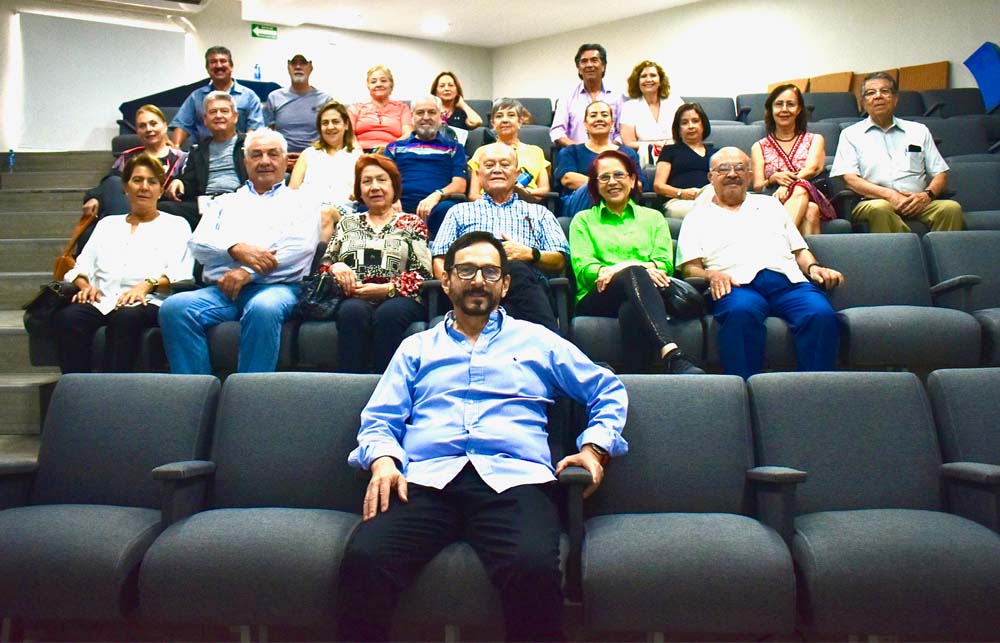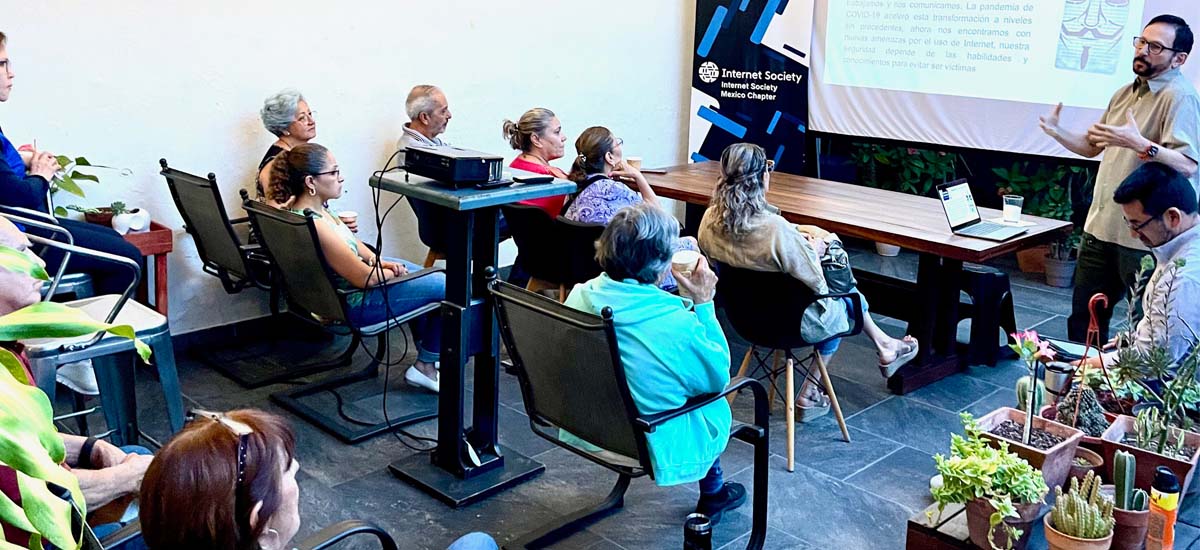In 2023, some 15,000 financial frauds took place every day in Mexico, with nearly 15% of the population getting scammed. As the Internet continues to become a more prominent part of our lives, online scams are growing in popularity, and older adults face unique risks.
While Internet coverage has expanded significantly in Mexico, “older adults have largely been left behind, without adequate training to use these digital tools safely and effectively,” explains Jeffry Fernandez, president of the Internet Society Mexico Chapter. “They may not recognize tactics like social engineering used by criminals to exploit them.”
Narrowing the Digital Divide in Mexico
For older adults, navigating the Internet can feel overwhelming. To help them build knowledge, skills, and confidence, our Mexico chapter organized a series of short courses.

These courses intended to educate people on identifying scams, spark dialogue, and empower them with essential Internet skills. So far, almost 200 people have participated.
Lessons focused on teaching the basics of social engineering, or the ‘art of deception.’ Participants learned about the strategies criminals use to scam people, identified common signs of deceit, and gained valuable insight into protecting their personal accounts.
“I am amazed at the variety of ways that exist today to steal a person’s identity and the possibility of emptying their accounts,” says Yolanda Alcántara Hernández, a retired professor who took the course. “What is most relevant to me are the preventative measures that must be taken.”

The classes discussed various examples of scams, and many people pitched in with their own experiences of fraud, from messages about unpaid fines to fake notifications about undelivered packages. Many did not realize that these were phishing scams, meant to collect their personal information and obtain money by creating a sense of urgency and fear.
Alcántara Hernández says she received a fraudulent phone call from someone pretending to be a bank executive, and is very suspicious of messages from unknown callers.
“It became evident that many seniors had never received formal instruction on securing their devices or recognizing social engineering tactics that pose a risk,” says Fernandez, who leads the initiative. “Lacking this knowledge, many of them approached online services with fear and distrust.”
Securing a Safe Digital Future for All
The Internet is for everyone, including older adults, but access alone isn’t enough if they can’t use it safely and confidently with the necessary tools and knowledge to avoid fraud.
“The impact of these scams extends beyond financial loss,” says Fernandez. “It also leaves older adults feeling marginalized from a society that increasingly relies on online services.”

To combat the generational digital divide, we must work directly with older populations, understanding and responding to their unique experiences and needs. That’s why initiatives like the courses facilitated by our Mexico chapter are so important. Without direct action, the divide will only continue to grow.
“Given the positive response, we have decided to continue our efforts, with a special focus on online security,” says Fernandez, noting that the initiative has been a success. With more courses on the horizon, this project will be able to reach even more communities and increase its impact.
Everyone deserves a safe and secure online experience. Do you want to expand your knowledge and strengthen your own digital skills? Check out our list of self-paced, on-demand courses.
Image © Internet Society Mexico Chapter

